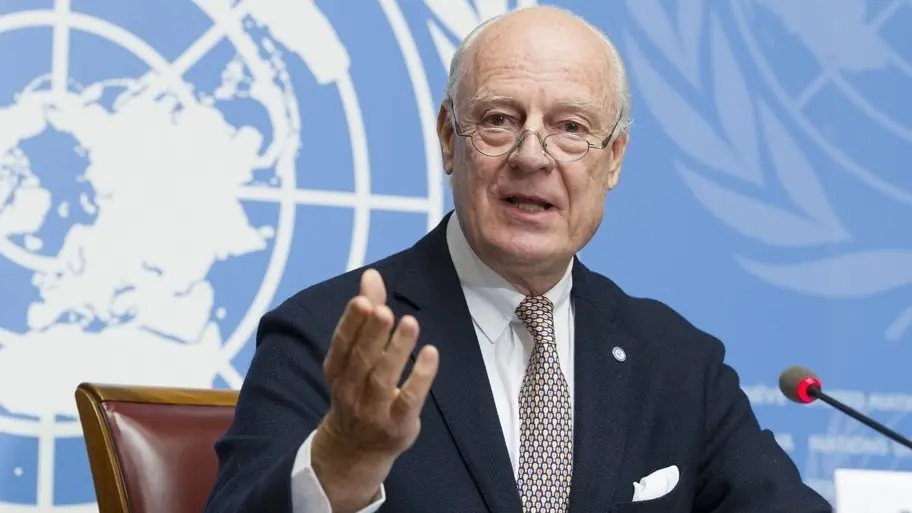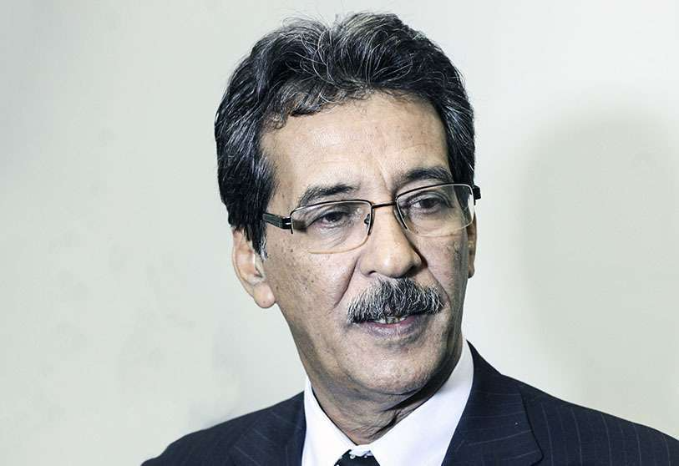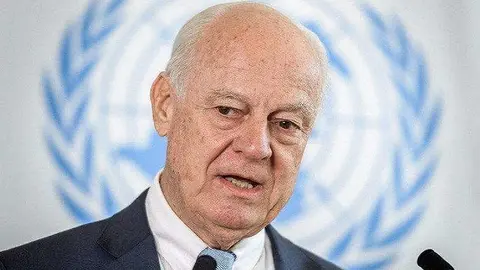US and UN promote diplomatic resolution of the Sahara conflict

The United States has taken the reins of the Sahara conflict and is stepping up diplomatic moves aimed at preventing further deterioration of relations between Morocco and Algeria.
With the closing date of the UN Mission in Western Sahara and the Security Council meeting on the issue just around the corner, the US government is multiplying contacts with the various parties in order to speed up a diplomatic resolution of the conflict.
Following the visit of US Assistant Secretary of State for Middle East Affairs Barbara Leaf to Morocco on 29 August to meet with Foreign Minister Nasser Bourita, the Assistant Secretary's deputy, Josh Harris, did the same with the Polisario Front leadership in Algeria.

All this on the eve of the visit of the United Nations envoy to the Sahara, Steffan de Mistura, to the Saharawi city of Laayoune, starting on Monday, 4 September.
Visit of Josh Harris to Tindouf
Josh Harris made reference to De Mistura's forthcoming trip, after concluding his visit to the Tindouf camps, and stressed the importance of supporting the efforts of the UN envoy to the Sahara, "in a spirit of realism and commitment".
According to the US State Department statement, Harris visited Tindouf (Algeria) to consult with a group of partners, including the Secretary General of the Polisario Front, Ibrahim Ghali, as well as UN agencies, non-governmental organisations and humanitarian agencies.
For his part, Mohamed Salem Abdel Fattah, head of the Saharawi Observatory for Media and Human Rights, interpreted the visit of Josh Harris as further proof of the efforts to achieve a solution to the Sahara conflict, in line with the work of Steffan de Mistura, which will conclude on 31 October next, with the publication of his report on the Saharawi dossier.
Fattah also recalled that 'Washington is the one with the pen when it comes to drafting Security Council Resolutions related to the Sahara issue' and stressed that 'Morocco always expresses frank positions of support for international mediation and international legitimacy'.
Nor has the US position on Morocco's sovereignty over the Sahara changed: last July, State Department spokesman Matthew Miller confirmed that President Biden's administration has not changed with respect to the Trump administration's decision to recognise Morocco's sovereignty over the Sahara.
In these declarations, Miller also emphasised the support of the United States for the mission of the UN Secretary General's personal envoy, Steffan de Mistura, and his efforts to reach a lasting and acceptable political solution for the Sahara.
De Mistura's tour of the Sahara
The envoy of the UN Secretary General begins a tour of the Saharawi region this Monday, 4 September, in preparation for his final report on the conflict, which he will present next October to the United Nations Security Council.
Over the next few days, Steffan de Mistura will hold several meetings with the parties concerned: local authorities; elected representatives, sheikhs and notables of the Saharawi tribes; and local civilian activists.

He will assess the situation in the southern regions and try to rally support for the autonomy initiative under Moroccan sovereignty, which is the UN's ideal solution for resolving the conflict.
De Mistura's visit comes at a particularly delicate moment in diplomatic relations between Morocco and Algeria, and aims to pave the way for a negotiated solution.
Since he took up the post of special envoy of the UN Secretary General on 1 November 2021, Steffan de Mistura has made two visits to Morocco, in January and July 2022, but until now he had not set foot on Sahrawi territory. He has also travelled to Algeria, Mauritania and the Tindouf camps.
Saharawis for Peace offers itself as a "third way".
On the occasion of De Mistura's visit to the Sahara, the Movement Saharawi for Peace (MSP) has urged the UN special envoy to "implement new initiatives or approaches to break the vicious circle by calling on other political actors and representatives of Saharawi civil society to participate in the peace talks".

The organisation has positioned itself as a "third way" and considers that its participation and contribution to the political process "will benefit the mutually acceptable solution recommended by the Security Council resolutions".









